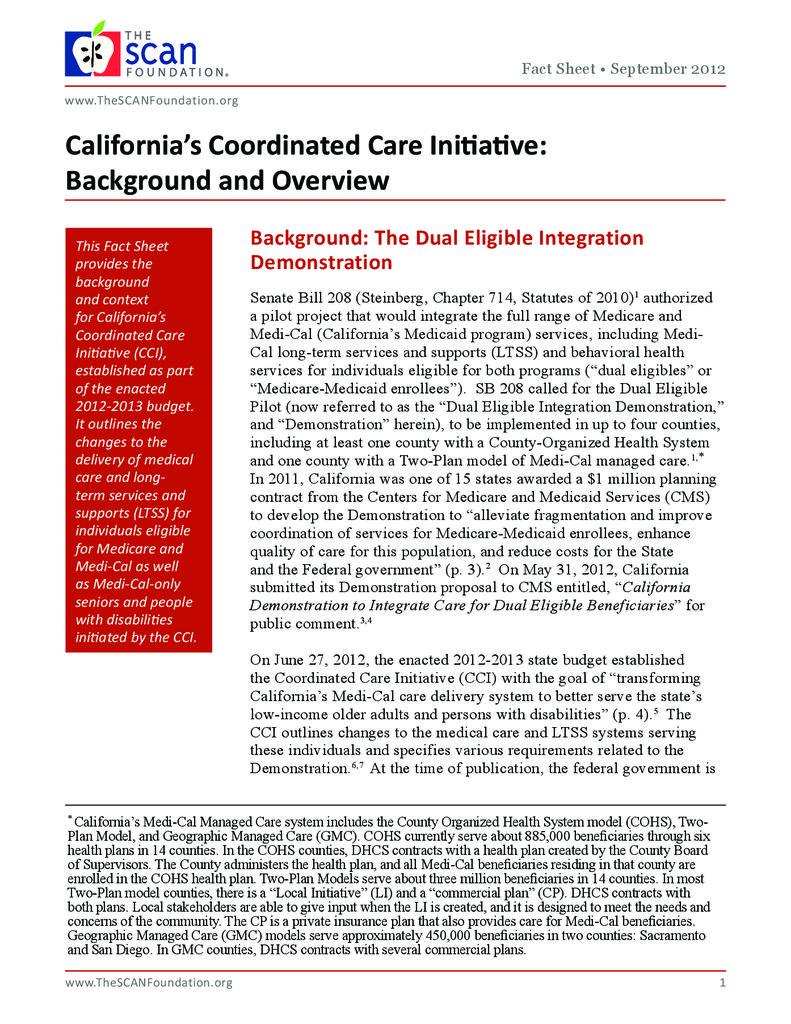California’s Coordinated Care Initiative: Background and Overview
summary
This fact sheet provides the background and context for California’s Coordinated Care Initiative (CCI), established as part of the enacted 2012-2013 budget. It outlines the changes to the delivery of medical care and longterm services and supports (LTSS) for individuals eligible for Medicare and Medi-Cal as well as Medi-Cal-only seniors and people with disabilities initiated by the CCI.
Date Updated: 09/10/2012Senate Bill 208 (Steinberg, Chapter 714, Statutes of 2010) authorized a pilot project that would integrate the full range of Medicare and Medi-Cal (California’s Medicaid program) services, including Medi-Cal long-term services and supports (LTSS) and behavioral health services for individuals eligible for both programs (“dual eligibles” or “Medicare-Medicaid enrollees”). SB 208 called for the Dual Eligible Pilot (now referred to as the “Dual Eligible Integration Demonstration,” and “Demonstration” herein), to be implemented in up to four counties, including at least one county with a County-Organized Health System and one county with a Two-Plan model of Medi-Cal managed care.
Continue Reading
This policy brief provides an introduction to The SCAN Foundation’s CLASS Technical Assistance Brief Series, which explores many of the critical issues to be considered for successfully implementing CLASS.
This policy brief describes the broad needs of individuals with disability and the wide range of supportive and environmental solutions that can allow for the most independent living possible. It suggests how findings on social and environmental supports for individuals with disability can inform implementation of CLASS.
This policy brief provides background on the historical development of benefit eligibility triggers in the private long-term care insurance market. Understanding how these triggers came into being can provide important information to those charged with implementing the CLASS Plan.


